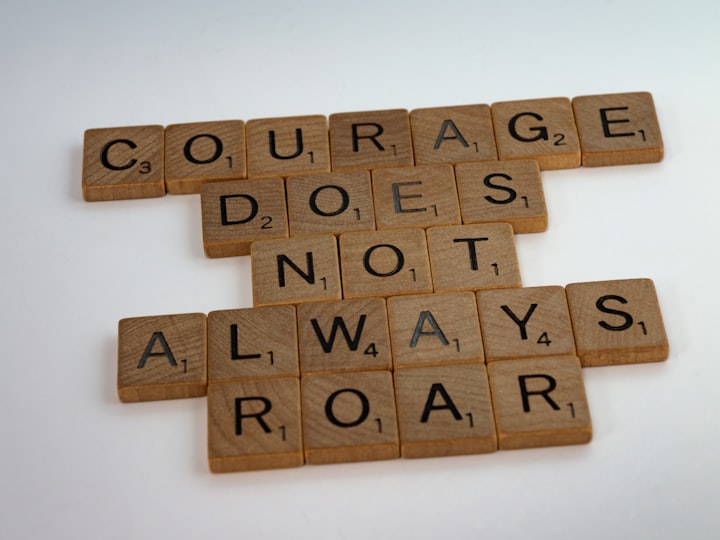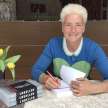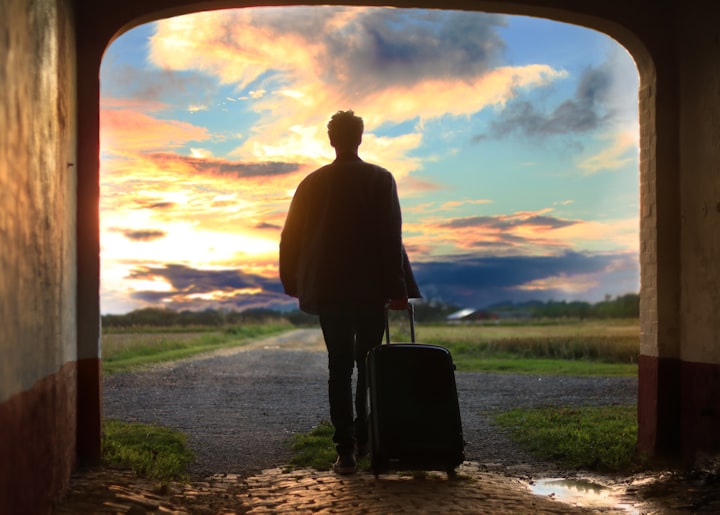Why We Must Always Take Sides
And the beautiful story of an 81 year old lady, who shows us how

When asked what she had learned from the Holocaust, Susan Sontag said:
“10 percent of any population is cruel, no matter what, and 10 percent is merciful, no matter what, and the remaining 80 percent can be moved in either direction.”
The two extremes of human nature, but my greatest interest lies in those in the middle – Susan Sontag’s 80%; those who are unsure, ill informed or simply old fashioned and somewhat resistant to any kind of change. These are ordinary people whose fears can often be allayed with time, information and positive experiences and this, in my opinion, is where we should concentrate our efforts and dedicate our time.
I myself had one such friend, now sadly deceased. Let me tell you what happened.
Back in 2015 she was 81 and although very sociable and friendly, she became nervous when out of her comfort zone – aren’t we all! As I began to visit the homeless people in our nearest city, she was shocked. We sat and talked over a bottle of wine one evening about how people become homeless and why people beg on the streets. Her mind most certainly wasn’t closed and I could see that just a little insight had already made her think. I invited her to go with me sometime, to see for herself, but I knew she wasn’t ready for that kind of contact yet. I didn’t push it. Instead, over the coming weeks and months, I simply talked about my new friends and showed her photos taken on my visits. And then out of the blue, there it was, the moment I’d waited for:
“Alex, the next time you visit your street friends, I’d like to go with you.”
I nodded, didn’t say very much – I didn’t want to turn it into a big deal. We simply agreed on a day the following week.
And there she stood – the elderly lady whose fear had so far led her to avoid every kind of unfamiliar human encounter – there in the street where my friend Daniel, a man severely disabled by polio, would sit in his wheelchair, day in day out, and beg for change from passers by. We approached him slowly and she held tightly onto my arm. She was nervous. I could feel it. I lay my hand on hers; she squeezed it and took a very deep breath. At that moment Daniel turned his head and beamed at us. Shyly, she returned his smile and he greeted us with his usual charm,
“Hey, Alex. Who is this beautiful lady?”
She melted like butter in the sun. The rest was child’s play.
With great care, she placed a ten-euro note in the milk carton which stood, as always, between his crippled feet and they chatted as easily as any two strangers can. I was grateful she didn’t notice the disapproving and often downright hateful expressions on the faces of those who passed us by. Expressions Daniel lived with every day of his life and to which I too had become accustomed. As we took our leave a short time later, she took his atrophied, deformed hand very gently in her arthritic one and wished him all the best. Short as this encounter may have been, it was of huge significance and her rather unsteady gait, as we walked on, spoke volumes. I suggested we stop at a nearby outdoor café and as I watched her over the rim of my coffee cup a few minutes later, I saw that her eyes were filled with tears.
“That poor man,” she whispered. “That poor man.”
Eight months later we had 17 young refugees from Afghanistan, Syria and Iraq in our village. 17 young men who needed our help.
The village where we live is like any other alpine ski resort. Almost every person who lives here was born either here or at least nearby, and it wasn’t surprising that the sudden arrival of 17 young men who spoke no German, looked different and were of a different faith, made a lot of people rather uncomfortable. I understand it. I do.
For me and the other helpers in the team, it was challenge. These young men were people – people who despite the cultural and language differences and the fact that they had nothing but the clothes they arrived in, were just oh so very happy to be here. Where it was safe. Where there are no bombs, no Taliban, no ISIS. But the locals were people too, and they were nervous. Somehow we had to build bridges and we all sensed it wasn’t going to be easy.
I asked the team leader what we needed. Toiletries, she said. Urgently. I immediately made myself a sign asking for shower gel, shaving foam and the like and drove to the next biggest town where I stood outside a busy drugstore for three hours in the hot, late summer sun. The reactions of the passers by could not fail to remind me of Daniel. Many people simply pretended I wasn’t there, some glared and others kindly donated. One woman deemed it necessary to voice her disapproval,
“Shame on you for helping those people!” she shouted.
“No,” I replied, calmly. “The shame is on you.”
I would love to be able to say that I was unaffected by her words and the filthy looks I received in those three short hours. I would be lying if I did. As I headed home the tears began to fall. Not so much for me, but for Daniel and for homeless people everywhere who are often forced to beg in order to survive. My God! They are people too, you know!
Later that evening I told my elderly friend about my experience. She looked at me for a long moment without saying a word.
“Why do you do that?” Why let yourself be treated like that for people you don’t even know?”
“Remember Daniel?” I almost whispered.
As her breath caught in her throat, she dropped her gaze and fell silent.
Two days later I visited the guys for the first time. They cooked a traditional Afghan meal for us and after a delicious dinner, I opted to stay after the other helpers left to go home to their families and we talked long into the night. As a psychiatric nurse I had experienced things that most people go a lifetime without ever coming close to experiencing, but during those first hours with the guys, I heard stories and saw photos and videos that no one should ever have to see, let alone experience. They are burned forever onto my soul.
I went home and even though it was very late, I went, as I always did, straight to my elderly friend for comfort. She listened in silence and when I’d finished she asked to be left alone to think.
The next morning she called me,
“Alex, I want to help,” she said. “Tell me what I can do.”
Three days later a young man from Iraq was to be seen on the balcony of her house, stripping the wood to prepare it for repainting before winter set in. In the beginning she was shy and rather nervous, but she gave him a chance and as the days went by he sang as he worked and she made him sweet tea, brought him biscuits and told anyone who would listen how hard he was working and what a lovely young man he was. Over the coming months, I took more of the young men to meet her. They helped in the garden, shoveled snow for her and she cooked and told them her many stories. They never left her home without a hug.
This was a lady who had been suspicious of strangers and anyone who was different her whole life, who had locked the door in case anyone came begging and been horrified by my stories about my street friends.
In the end, all it took was the right information from a source she trusted (me) and then the courage and willingness to see for herself and form her own opinion.
The change in her mindset helped to change the way our neighbours and her peers viewed those boys and it’s not enough in these troubled times to remain indifferent to suffering.
We must be brave enough to take sides, for if we do not, we have as good as spoken for the persecutor and not the persecuted.
About the Creator
Alex Frederickson
I am a former psychiatric nurse, passionate about writing, people, photography and telling stories from real life.






Comments
There are no comments for this story
Be the first to respond and start the conversation.